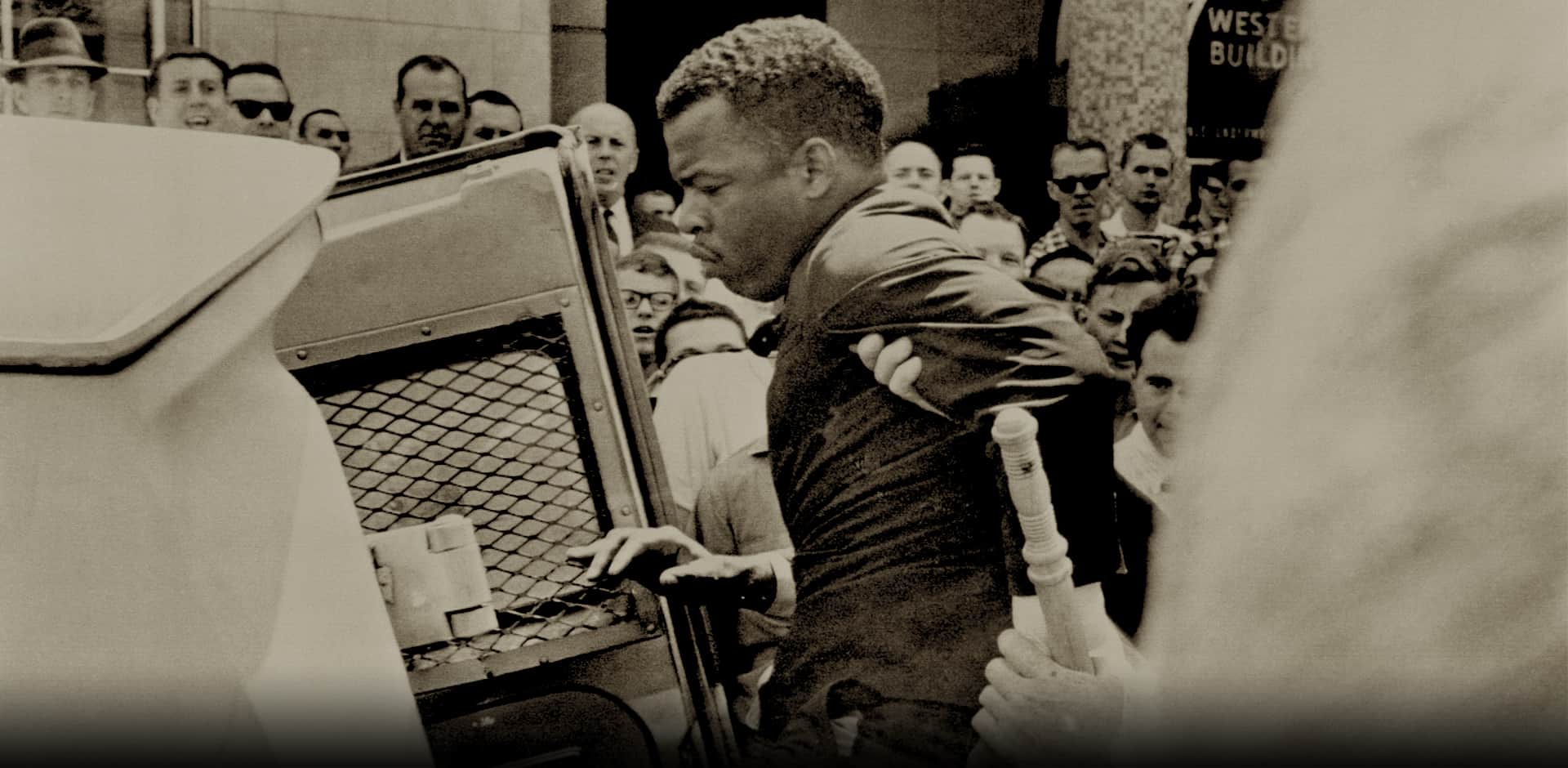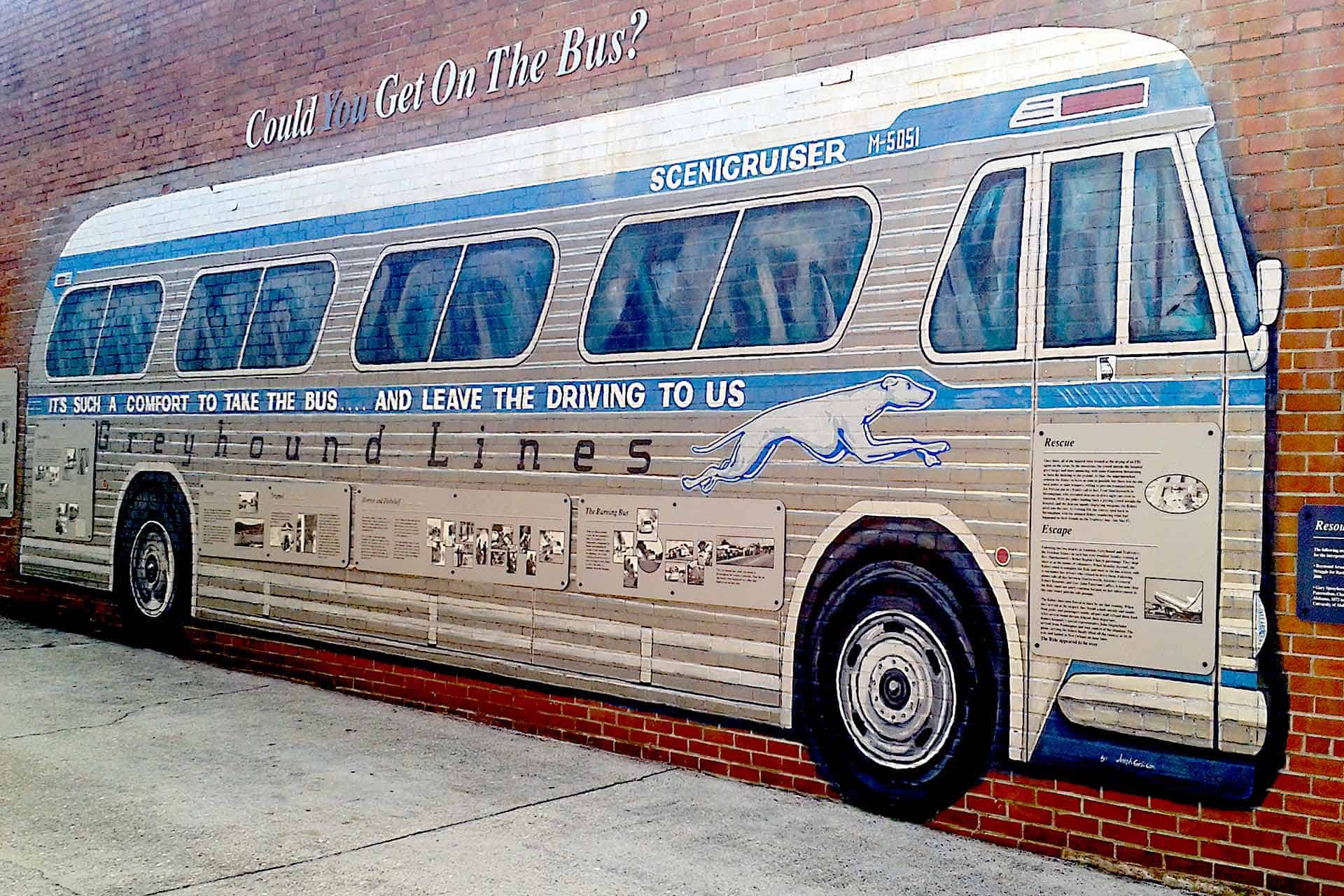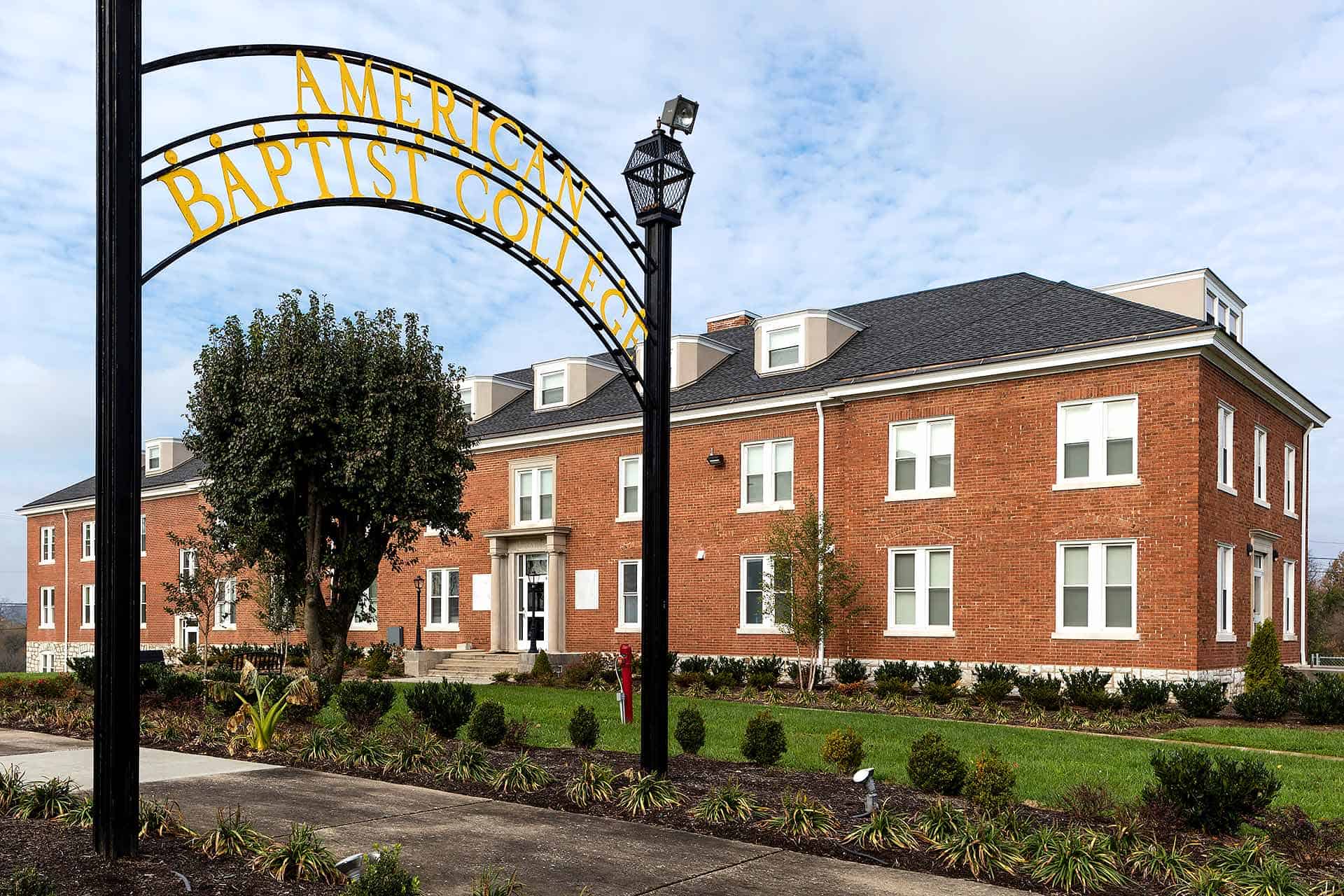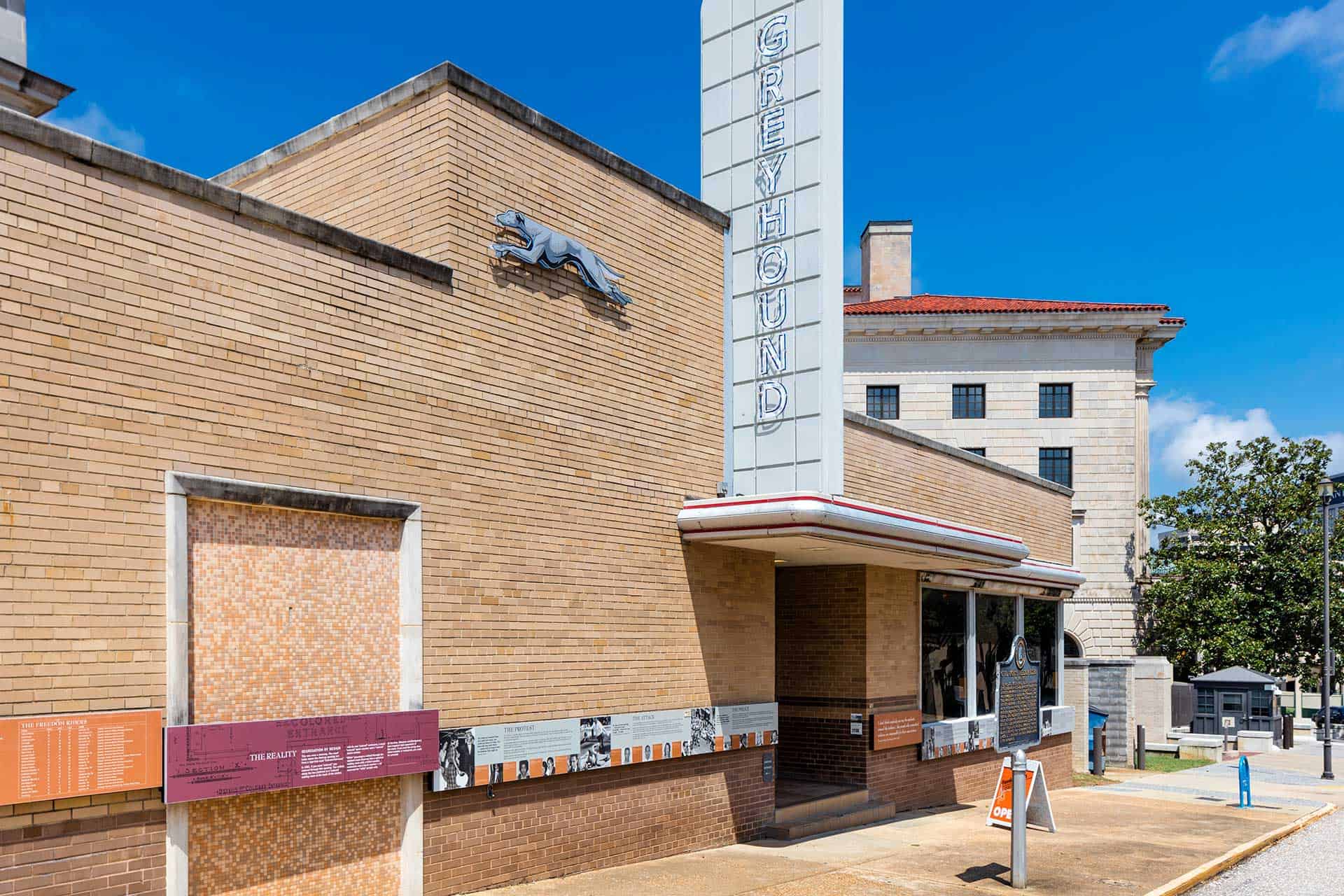Congressman John Lewis was born to sharecroppers on February 21, 1940, near Troy, Alabama. He passed away on July 17, 2020, after a six-month battle with pancreatic cancer. He was 80.
As a boy, he heard radio broadcasts of the Rev. Martin Luther King Jr.’s words during the Montgomery Bus Boycott and was compelled to become part of the movement.
In 1960, he participated in the first mass lunch counter sit-ins in Nashville, Tennessee, and as a Freedom Rider was badly beaten by a white mob in Montgomery. In 1963, at age 23, he was a keynote speaker at the historic March on Washington. That same year, he became chairman of the Student Nonviolent Coordinating Committee (SNCC).
In this leadership role, Lewis organized voter registration efforts and community action programs during the Mississippi Freedom Summer in 1964. The next year, on March 7, Lewis and Hosea Williams, another significant leader of the movement, led over 600 peaceful protestors across the Edmund Pettus Bridge in Selma, Alabama. The destination of their march for voting rights was the state capital of Montgomery, but Alabama state troopers attacked them at the bridge in a violent confrontation that became known as “Bloody Sunday.” News coverage of the conflict made the nation aware of the injustice and brutality of the segregated South and served to move forward the passage of the Voting Rights Act of 1965.
Though his work for civil rights led to further attacks, injuries and more than 40 arrests, Lewis continued to adhere to the philosophy of nonviolence and the furthering of the movement. After leaving the SNCC in 1966, he served as associate director of the Field Foundation, which supported civil rights and social change. Lewis also participated in voter registration programs with the Southern Regional Council, an organization created to promote racial equality.
Lewis served as a U.S. Representative of Georgia’s 5th Congressional District from November 1986 until his passing. During his time in Congress, he was the senior chief deputy whip for the Democratic Party in leadership in the House, a member of the House Ways & Means Committee, and chairman of its Oversight Subcommittee. Lewis received multiple awards from national and international institutions and in 2015 was granted the highest civilian honor, the Medal of Freedom, by President Barack Obama.
We’re indebted to Congressman Lewis whose fight for racial equality and encouragement to “keep the faith” truly helped spread the message that “what happened here changed the world.”


































